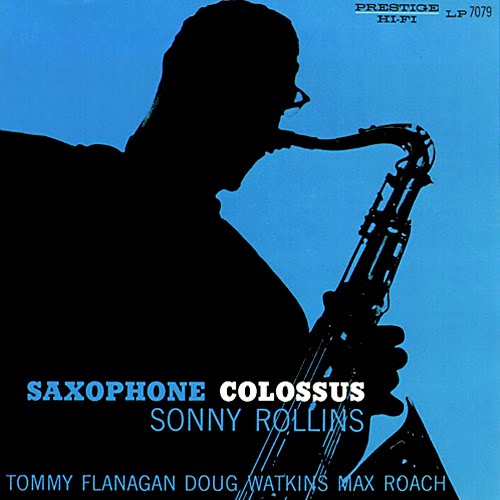Re: Jazz - What's your bag, man?
Posted: Tue Dec 24, 2013 10:26 am
I was very sad to learn of the death of Yusef Lateef, may he rest in peace:

Intercutting incredible street footage of Chicago African-American life with a staged interracial party, CRY is part essay, part manifesto, and as startling today as it must have been in the late 1950s. Music is provided by the singular Sun Ra and his Arkestra, who are seen and heard performing at the height of their swing heyday. Shot with practically no budget by a volunteer crew numbering some 65 people, THE CRY OF JAZZ was the only film made by Ed Bland who went on to have a distinguished career as composer, arranger, and producer for the likes of Dizzy Gillespie, Elvin Jones, and many, many others...

An inspired choice Mark. Saxophone Colossus is one of my favourite Jazz albums of all time, and was recorded by one of my favourite tenor players: Sonny Rollins; Stan Getz and Zoot Sims are the other two. It was recorded and released to wide acclaim in 1956. It's popularity has not dimmed with the passage of time. Sonny Rollins playing on Blue Seven was the subject of a marvellous article by Gunter Schuller entitled, Sonny Rollins and the Challenge of Thematic Improvisation, it was published in The Jazz Review in the late Fifties.markof wrote:
Todays lunchtime concert :-)
Thanks for the insight Seán - I'll chase up that link.An inspired choice Mark. Saxophone Colossus is one of my favourite Jazz albums of all time, and was recorded by one of my favourite tenor players: Sonny Rollins; Stan Getz and Zoot Sims are the other two. It was recorded and released to wide acclaim in 1956. It's popularity has not dimmed with the passage of time. Sonny Rollins playing on Blue Seven was the subject of a marvellous article by Gunter Schuller entitled, Sonny Rollins and the Challenge of Thematic Improvisation, it was published in The Jazz Review in the late Fifties.
 .
. 
Thanks for this choice lads.Came in the post today. Struggling through it not. Excellent stuff magical lovely sounds.Seán wrote:An inspired choice Mark. Saxophone Colossus is one of my favourite Jazz albums of all time, and was recorded by one of my favourite tenor players: Sonny Rollins; Stan Getz and Zoot Sims are the other two. It was recorded and released to wide acclaim in 1956. It's popularity has not dimmed with the passage of time. Sonny Rollins playing on Blue Seven was the subject of a marvellous article by Gunter Schuller entitled, Sonny Rollins and the Challenge of Thematic Improvisation, it was published in The Jazz Review in the late Fifties.markof wrote:
Todays lunchtime concert :-)
Some background information:fergus wrote:I have been listening to this one recently....
I wonder does Seán or anyone else have any insights into this album?